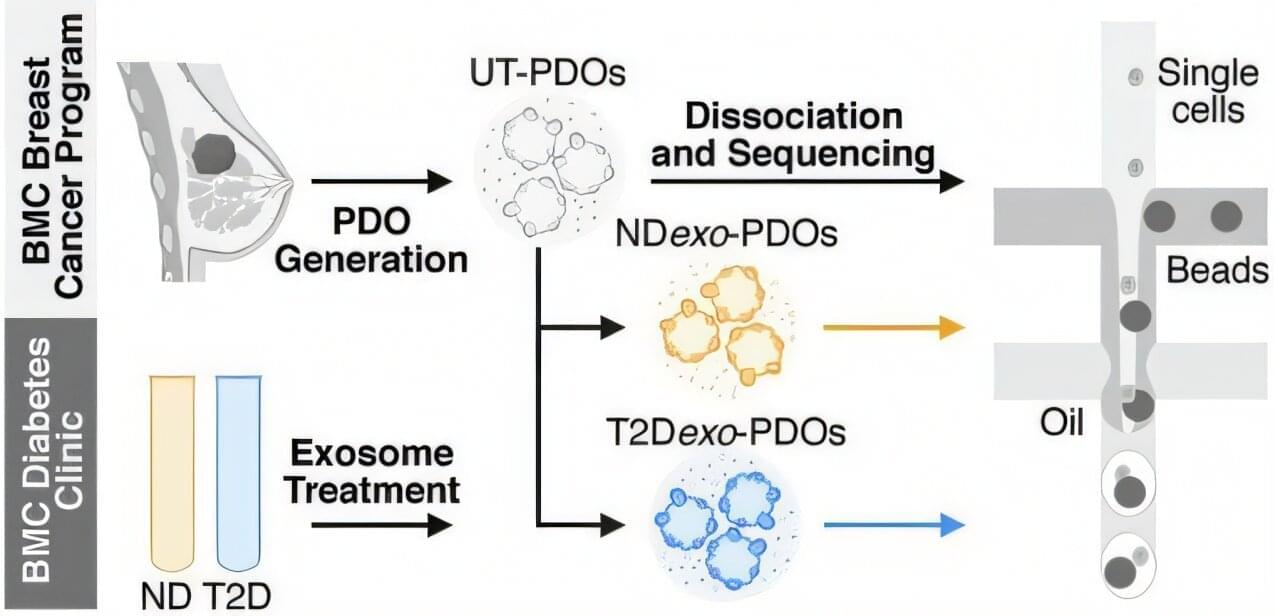People with type 2 obesity-driven diabetes tend to have more aggressive breast cancers, but no one knows exactly why. A new study by researchers at Boston University Chobanian & Avedisian School of Medicine and published in Communications Biology found that tiny particles in the blood, known as exosomes, which are altered by diabetes, can reprogram immune cells inside tumors, making them weaker and allowing the cancer to grow and spread more easily.
“This is the first study to directly link exosomes from people with type 2 diabetes to suppressed immune activity inside human breast tumors,” said corresponding author Gerald Denis, Ph.D., the Shipley Prostate Cancer Research Professor at BU.
In the study, researchers used tumor samples from breast cancer patients to grow 3D tumor models in the lab. Known as patient-derived organoids, these models contain the immune cells originally found in the tumor. These mini-tumors were treated with blood exosomes from people with and without diabetes but also without any cancer. The researchers analyzed the organoids using single-cell RNA sequencing to see how the exosomes affected the immune cells and the tumor itself.
